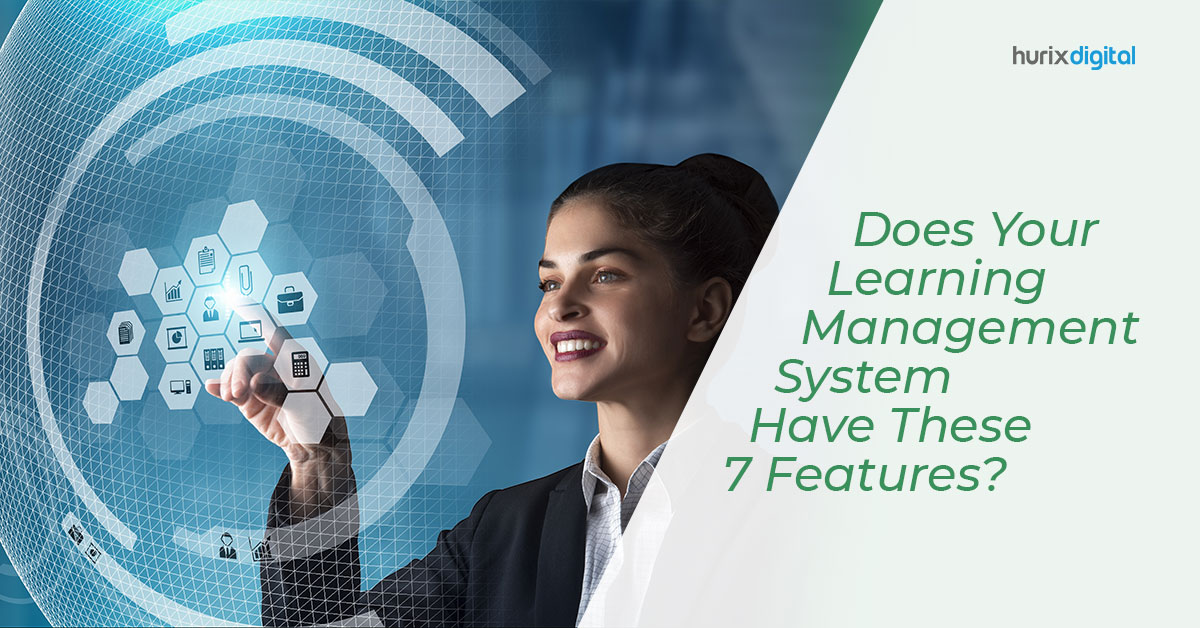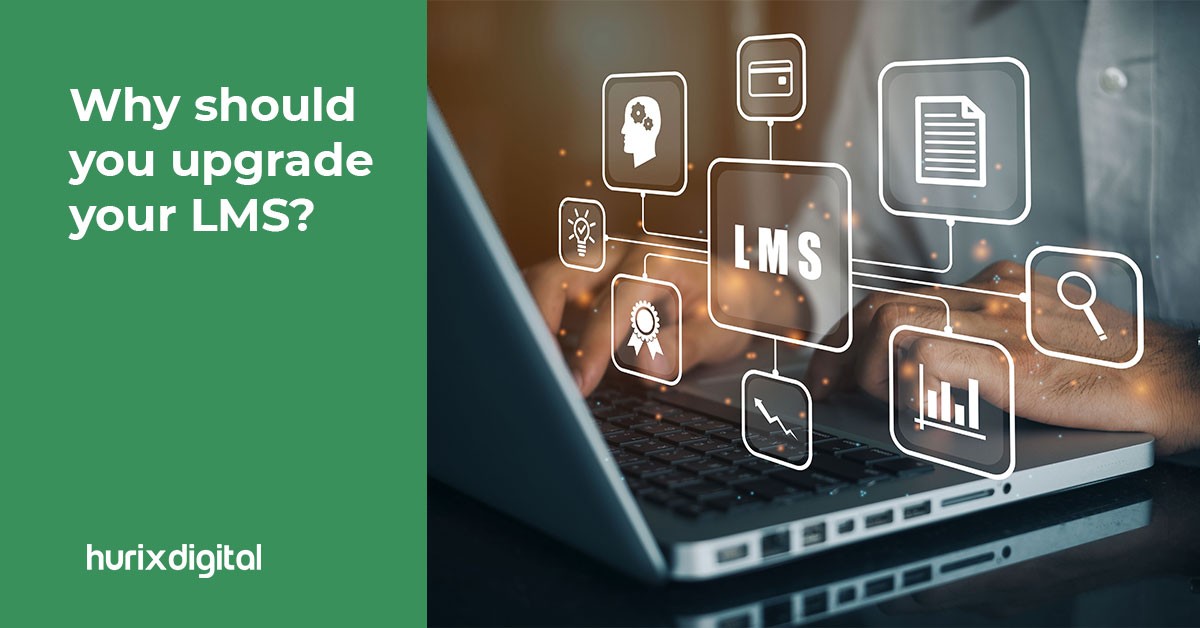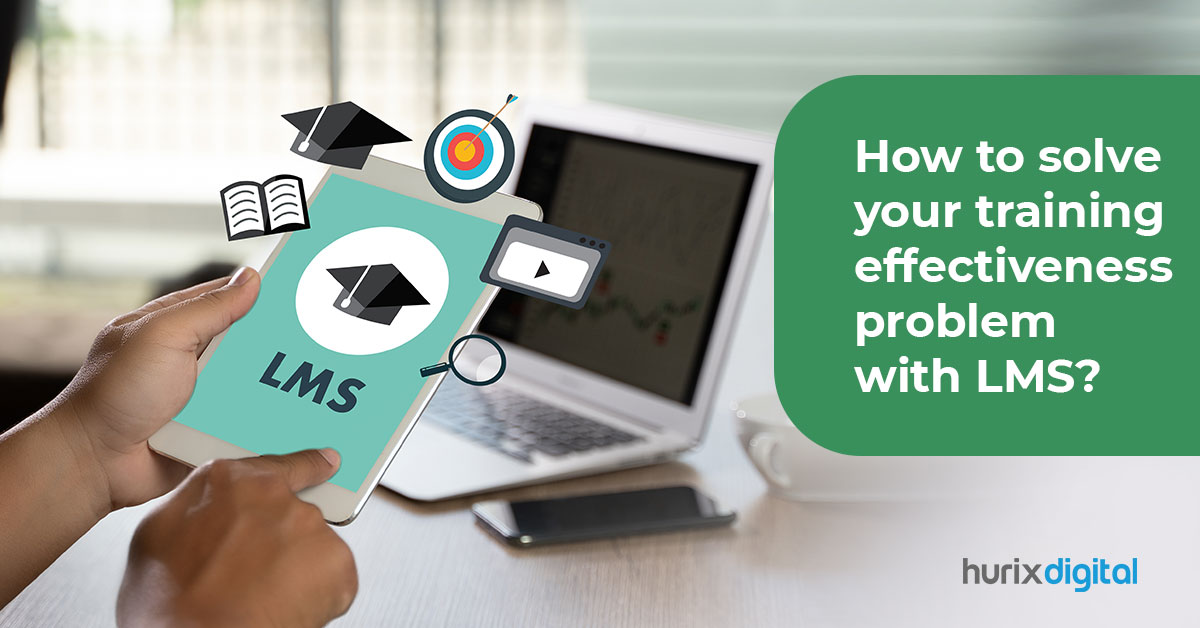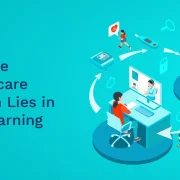
Does Your Learning Management System (LMS) Have These 7 Features?
Table of Contents:
- Introduction
- What are the Seven Most Critical LMS Features?
1. Personalized Learning Path
2. Compliance and Certification Tracking
3. Comprehensive Assessment and Reporting Tools
4. Mobile Compatibility
5. Simplified User Interface
6. Multiple Software Integration
7. Comprehensive Support Services - Final Words
Introduction
Realizing the practical benefits of e-learning, many organizations today choose to invest in a robust Learning Management System (LMS) with the latest LMS features. It has resulted in an exponential growth of learning management platforms, with nearly a 7X increase in the LMS market in less than a decade.
All these platforms come with a wide variety of differentiated features. But though each feature has its benefits, the abundance of the same can make it complicated for organizations to identify the ones relevant to their workforce.
Hence, if you’re considering installing a new LMS or upgrading the existing one, selecting the right LMS service with features that match your business goals and workforce requirements is crucial.
Top seven most critical LMS features to provide an excellent learning experience for your team:
1. Personalized Learning Path
One of the biggest benefits of e-learning, as opposed to classroom training, is being able to customize your learning path to meet your interests and pace. The feature is a must-have for all LMS, whether used for corporate training or educating university students.
A learner should be able to find a self-paced course based on their learning history and area of work. For instance, if you’re in a finance role, the LMS should be able to offer more finance-related training to you, which you can complete in your timeline.
Also, learners should be able to pick the module they want to study instead of sitting through the entire course. Such personalization will make the learning process more exciting and result in better learning outcomes.
2. Compliance and Certification Tracking
For many business organizations, the main reason for adopting a Learning Management System is to comply with laws across industry sectors. These laws require employers to train their employees to a specific industry standard and keep track of their training completion.
Such businesses must look for an LMS feature that can deliver, capture, and record training completion certificates of thousands of employees in a centralized database. It will enable the organization to produce proof of compliance in an audit easily.
The feature will not only help organizations prevent violation fines but also save massive administration costs associated with keeping a physical record of each training.
Apart from meeting compliance requirements, tracking training completion will also enable management to measure employee improvements and gauge the result of the training efforts.
3. Comprehensive Assessment and Reporting Tools
While assessment tools are a must-have for educational institutions, it is beneficial for professionals, too, to track their learning performance.
An LMS that supports a wide range of assessment tools such as quizzes, MCQs, or exam engines will help trainers gauge learners’ understanding, engagement, and retention and provide immediate feedback.
Similarly, every organization would like a reporting tool that provides valuable analytics on the learner’s progress, course popularity, engagement rate, completion rate, etc.
These important KPIs will help you monitor employee training at the individual and company levels and make necessary changes or take actions s required.
4. Mobile Compatibility
Trainers today do not stick to a particular device but instead prefer the flexibility of learning through gadgets, including smartphones, tablets, or desktops. So you must ensure that the LMS platform you choose will also offer learners the best user experience on these devices.
With mobile capabilities such as downloadable apps, learners can participate in the training from anywhere, even on the go. The feature is especially beneficial if your organization requires learning outside work or between calls and visits.
5. Simplified User Interface
A user-friendly interface is one of the most basic requirements of a good LMS, but most buyers neglect this feature while considering which platform to buy. You must ensure that the LMS you choose matches your team’s ability, skill level, and competency.
So always keep the end-user experience in mind whenever you choose an LMS platform, and always request a demo before making the purchase.
Not able to decide on a platform? This guide on how to choose the best LMS platform for your business will help you make the right pick.
An easy-to-navigate interface will result in an excellent user experience and higher user engagement. Or else it will become challenging for the administrator to get the learners interested.
6. Multiple Software Integration
Another essential feature you should not miss is your LMS’s ability to integrate seamlessly with third-party software. Since a single LMS may not have all functionalities built-in, these integrations will help expand the utility of your system.
For instance, if you require instructor-led training, your LMS should be able to integrate with video conferencing tools. Similarly, if you plan to have paid subscriptions or paid one-on-one sessions, you should look for an LMS that can integrate with secure e-payment gateways.
The kind of integration required will vary from organization to organization.
However, you can take cues from the current tools you use and your future business plan to avoid missing out on the important ones.
7. Comprehensive Support Services
The level of support you require will depend on the complexity of the system and the end-user experience with the system.
If your team is using an LMS for the first time, it is safe to assume that you will need considerable onboarding support to deploy the system effectively. In such cases, it is best to partner with a supplier that can provide direct support and assistance whenever your team faces any difficulty.
It is always wise to have an agreement beforehand regarding the medium of support, operating hours, and turnaround time for problem resolution.
Final Words
These are some of the most critical features of any LMS. You can increase or decrease them as per your organization’s needs and goals.
It is always beneficial to prepare a checklist of all the essential features before you begin your search. This way, you’ll be far more likely to extract the maximum utility of your LMS and get a high return on your investment.
At Hurix Digital, we help organizations from across industries achieve their business goals with our customizable e-learning content solutions that meet all your business needs. Our learning solutions are equipped with the latest technology and software infrastructure for a holistic user experience.
Check out this blog to see how Hurix Learning Solutions can help your employees succeed.

Vice President & SBU Head –
Delivery at Hurix Technology, based in Mumbai. With extensive experience leading delivery and technology teams, he excels at scaling operations, optimizing workflows, and ensuring top-tier service quality. Ravi drives cross-functional collaboration to deliver robust digital learning solutions and client satisfaction








